 | Prof Charles Shey Wiysonge Prof Wiysonge is the Director of Cochrane South Africa at the South African Medical Research Council. He is also an Extraordinary Professor in the Department of Global Health at the Faculty of Medicine and Health Sciences, Stellenbosch University, and an Honorary Professor in the School of Public Health and Family Medicine, University of Cape Town; both in South Africa. Professor Wiysonge was previously the Deputy Director of the Centre for Evidence-based Health Care, Head of the Knowledge Translation Unit, and Head of the Implementation Research Regional Training Centre at Stellenbosch University, South Africa. |
 | Ms Tigest Tamrat Tigest Tamrat is a Technical Officer at the World Health Organization’s Department of Reproductive Health and Research based in Geneva, Switzerland. Her work focuses on the use of digital technologies to accelerate health system improvements and support reproductive, maternal, newborn, child and adolescent health. Within this role, Ms Tamrat has been leading the development of WHO Guidelines on digital interventions for health system strengthening, as well as other WHO resources targeting the digital health community including the classification of digital health interventions, mHealth Assessment and Planning for Scale (MAPS) Toolkit, a handbook on Monitoring and Evaluation of Digital Health Interventions, and the web-based Digital Health Atlas. Previously, Ms Tamrat worked on maternal and adolescent health research spanning East and West Africa at the Population Council, as well as at health innovations research lab evaluating emerging technologies. Trained as an epidemiologist, Ms Tamrat holds a Masters in Public Health from Columbia University. |
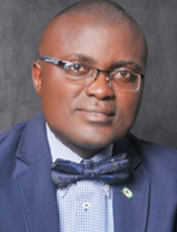 | Dr Emmanuel Effa Dr Effa is a Senior Lecturer in Internal Medicine at the University of Calabar, honorary chief Consultant Nephrologist to the University of Calabar Teaching Hospital, as well as the Head of the Renal Division of the Department of Internal Medicine at both institutions. He is an International Society of Nephrology (ISN) scholar and pioneered kidney care services at the University of Calabar Teaching Hospital in 2012. Dr Effa coordinates training in Evidence Based Healthcare, systematic reviews and guidelines development and adaptation at Cochrane Nigeria located within the Calabar Institute of Tropical Diseases Research and Prevention in collaboration with the Effective Health Care Research Consortium at the Liverpool School of Tropical Medicine and the Cochrane Africa Network. |
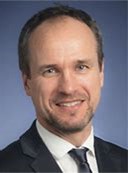 | Dr Holger Schünemann Dr Schünemann is chair of the Department of Health Research Methods, Evidence, and Impact at McMaster University. He began his research career in respiratory and exercise physiology (Dr.med.) as a medical student and in nutritional epidemiology (PhD) and molecular biology (postdoc) in the Department of Physiology at the Medical School of Hannover and the University at Buffalo (UB), State of New York. He trained in internal medicine, epidemiology and preventive medicine. Having contributed to over 600 peer-reviewed publications, he has been listed among the most influential 3,000 scientific minds of current times (Thomson Reuters) across all scientific disciplines since 2015 and has an h-index of 127/88 (google scholar/web of science) and is among the 1500 most cited scientists of all times (www.webometrics.info). He is co-chair of the GRADE working group, the director of Cochrane Canada, a co-chair of the GINAHTA working group. He led or participated in high-profile guideline panels, including for the WHO and numerous professional societies and he was a key contributor to the revised methods for WHO guideline development in 2006 and the GIN-McMaster Guideline Development tool. Maintaining an active clinical practice fulfils his passion for patient care and ensures his research is people-oriented. |
 | Dr Tamara Lotfi Dr Lotfi is the Coordinator of the Global Evidence Synthesis Initiative (GESI) Secretariat at the American University of Beirut (AUB) and a Research Associate at the Faculty of Medicine at AUB, Lebanon. She received her Medical Doctor degree from Université Saint Joseph, Lebanon (2013) and her Master’s in Public Health concentrating in Epidemiology & Biostatistics (2016) at AUB. She has been involved in more than ten systematic reviews, three overview of reviews, three observational studies and contributed to the evidence that fed into the European Center for Disease Control’s Guidelines for Screening Migrants arriving to Europe. She is teaching the course on Systematic Reviews and Meta-analysis at AUB. Her research interests are in methods for conducting, reporting and appraising cross-sectoral evidence synthesis; health systems; planetary health; and clinical or public health practice guideline development. |
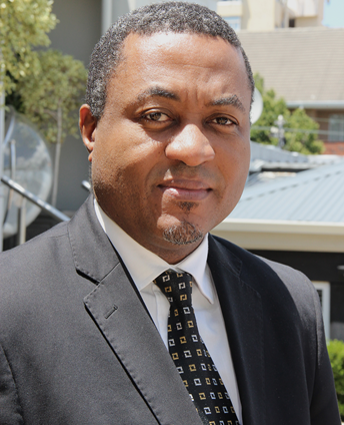 | Dr Pierre Ongolo-Zogo Dr Ongolo-Zogo is a leading health systems researcher in the African nation of Cameroon. He holds a medical degree from Université Poincaré, in Nancy, France, a fellowship in radiology and medical imaging at Université C. Bernard in Lyon, France, and a M.Sc. in biomedical engineering from Université J. Fournier in Grenoble, France. He is the founder and Director of the Center for Development of Best Practices in Health, and Chief of Radiology and the Medical Imaging Unit, at Yaoundé Central Hospital, and an Associate Professor, Faculty of Medicine and Biomedical Sciences, at the University of Yaoundé I. |
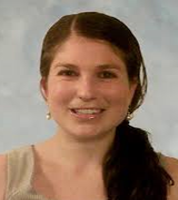 | Ms Anel Schoonees Ms Schoonees is a full time researcher at the Centre for Evidence-based Health Care, Stellenbosch University, South Africa. She has a background in Food Science and Dietetics, and holds Master’s degrees in Nutrition and in Clinical Epidemiology. She conducts systematic reviews (including Cochrane Reviews) and is involved in other research activities; coordinates undergraduate and postgraduate modules; teach evidence-based health care and systematic reviews; and is involved in knowledge translation activities to promote the uptake of systematic reviews by stakeholders. |
 | Ms Austrida Gondwe Ms Gondwe has a Masters in International Community Health. She is a final year PhD candidate at the University of Tampere in Finland. Currently, she is the Knowledge Translation Specialist at Dignitas International, Malawi. She also works as an NCD BRITE senior study coordinator at Dignitas International. In her position, as Knowledge Translation Specialist, she works directly with Knowledge Translation Platform Malawi (KTPMalawi) and has lead the development of five policy briefs and policy dialogues in the following topics, Supply Chain Management, Integration of Hypertension in HIV Clinics, Improving Adolescents Access to Contraceptive Use, Improving high Burden of Malaria in Under-five children, Improving Retention in ART Care of Pregnant and Breastfeeding Women in Malawi. She is also leading the development of four more policy briefs in health financing, adolescent HIV, population growth and cervical cancer and HIV. She had obtained a certificate of trainer of trainers on Rapid Response Unit from Makerere University. In Malawi, she works with policy-makers, academicians, civil society groups and researchers. |
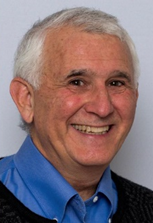 | Dr Andy Oxman Dr Oxman works as a health services researcher in the Centre for Informed Health Choices at the Norwegian Institute of Public Health. His research over the past three decades has focused on ways of helping people to make informed choices about healthcare. His current research focuses primarily on developing and evaluating learning resources to enable people to assess claims about effects. He is particularly interested in resources for children and for people in low-income countries. |
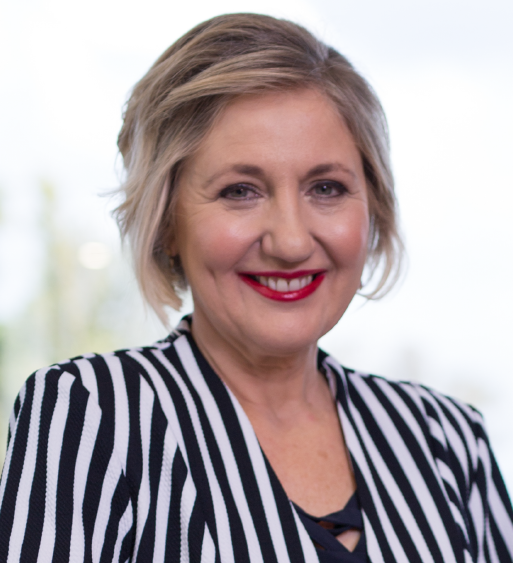 | Prof Glenda Gray An NRF A1 rated scientist, CEO and President of the South African Medical Research Council (SAMRC), Professor Glenda Gray is a qualified pediatrician and co-founder of the internationally recognised Perinatal HIV Research Unit in Soweto, South Africa. Prior to her appointment at the SAMRC, she was the Executive Director of the Perinatal HIV Research Unit, an affiliate of Wits University. Glenda’s global profile includes a role as Co-PI of the HIV Vaccine Trials Network (HVTN), a transnational collaboration for the development of HIV/AIDS prevention vaccines. She is also Director of International Programmes for HVTN and Chairperson of the Board of the Global Alliance for Chronic Diseases, and a member of the Institute of Medicine of the National Academies, USA. She received South Africa’s highest honour - the Order of Mapungubwe - for her pioneering research in PMTCT. Other prestigious accolades include the Nelson Mandela Health and Human Rights Award for significant contributions in the field of mother-to-child transmission of HIV. Selected as one of Time’s 100 Most Influential People in the World, Glenda is a recognised leader in her field. Her qualifications include an MBBCH, FCPaeds (SA), DSc (honoris causa). |
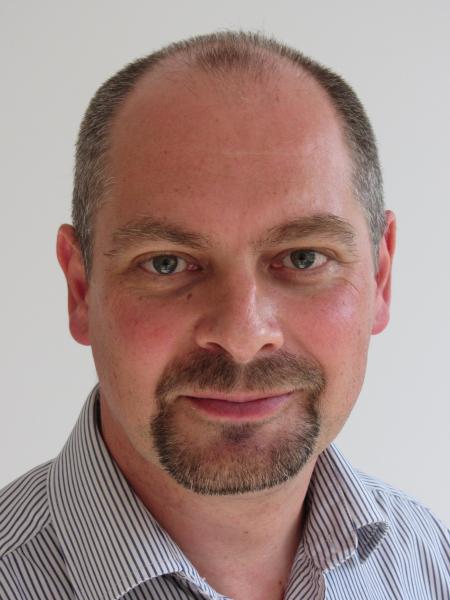 | Mr Mark Wilson Mr Wilson started work as Cochrane’s new Chief Executive Officer in November 2012. He has extensive leadership experience at the highest levels in international humanitarian and development organisations, including the International Federation of Red Cross and Red Crescent Societies, where he was Chef de Cabinet, Senior Advisor to the Secretary General and the organisation’s Head of Planning. Previously he had been Head of Delegation in Mozambique; managed the Federation’s humanitarian operations in former Yugoslavia from 1996 to 2000; and in charge of the Federation’s Appeals & Reports for Africa and Europe from 1994 to 1996. From 2004 to 2012 Mark was Executive Director of Panos London, and Chair of the worldwide Panos Network of Institutes which he helped to establish. Panos aims to ensure information and communication is effectively used to foster public debate, pluralism and democracy amongst poor and marginalised communities around the world. He is a member of the Royal Institute of International Affairs and the International Institute for Strategic Studies, and a Fellow of the Chartered Management Institute in the UK. He holds Masters degrees from Universities in the UK and Canada in International Politics; Soviet and East European Studies; Journalism; and Management. As a former journalist in London and Hong Kong, and Communications Director of the Swiss-based Business Council for Sustainable Development, he is an experienced commentator on international economics, business and politics. |
 | Prof Jimmy Volmink Jimmy Volmink is a Professor in the Department of Global Health and Dean of the Faculty of Medicine and Health Sciences at Stellenbosch University. He was the founding Director of Cochrane South Africa and has also served as Director of Research and Analysis of the Global Health Council in Washington DC. His special interests include evaluating the effects of health care interventions, promoting evidence-based decision making, addressing health inequalities and fostering research capacity building. Prof Volmink is an elected Member of the Academy of Science of South Africa and an elected Fellow of the Royal College of Physicians of Edinburgh. He is also a recipient of a Leverhulme Medal from the Liverpool School of Tropical Medicine and a Recognition Award from the South African Medical Research Council for outstanding achievements in contributions to Evidence-based Health Care in Africa. |
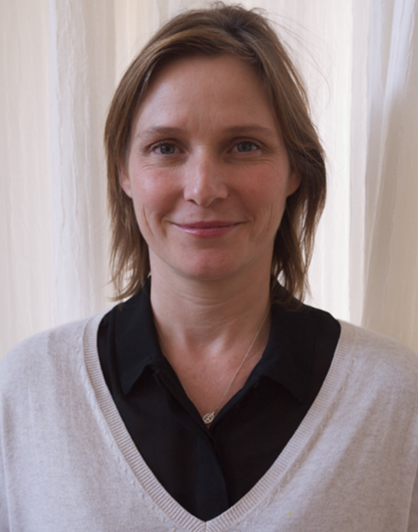 | Dr Tamara Kredo Dr Kredo is a Senior Specialist Scientist at Cochrane South Africa, based at the South African Medical Research Council. She is a medical doctor with a specialist qualification in Clinical Pharmacology. She works in the field of evidence-informed healthcare in particular evidence synthesis and knowledge translation. Her research includes exploring the South African primary care guideline landscape and developing partnerships for enhancing guideline activities in South Africa. Additional fields of interest include enhancing regional clinical trial transparency through the Pan African Clinical Trials Registry (www.pactr.org) and supporting capacity development initiatives for evidence-based healthcare in South Africa and the African region through her affiliation with Stellenbosch University and work of the Cochrane African Network. |
 | Dr Nasreen Jessani Dr Jessani is faculty at the Johns Hopkins School of Public Health, USA and the Centre for Evidence Based Health Care at Stellenbosch University, South Africa. Based in Johannesburg, her research as well as capacity strengthening efforts focus on the nexus between health policy and systems research; innovations in evidence-informed policy and practice; and the relationship between academia and public policy. She currently supports over 15 country teams across Africa and Asia on strategic engagement related to data for decision making through the CEBHA+ and PMA2020 projects. Nasreen’s global reputation in this field for the last 15 years has led to her serve as Vice-Chair of the Evidence to Action Thematic Working Group for Health Systems Global, on WHO/FERG’s Knowledge Translation and Policy Group, and on AcademyHealth’s Translation and Dissemination Institute advisory board. She is also Senior Technical Advisor at the Gates Institute. Nasreen has lived and worked across several countries including Kenya, UAE, Bangladesh, Thailand, Pakistan, Vietnam, Uganda, Canada, USA, and South Africa while working with renowned agencies such as IDRC, BRAC, FHI360, WHO and R4D amongst others. |
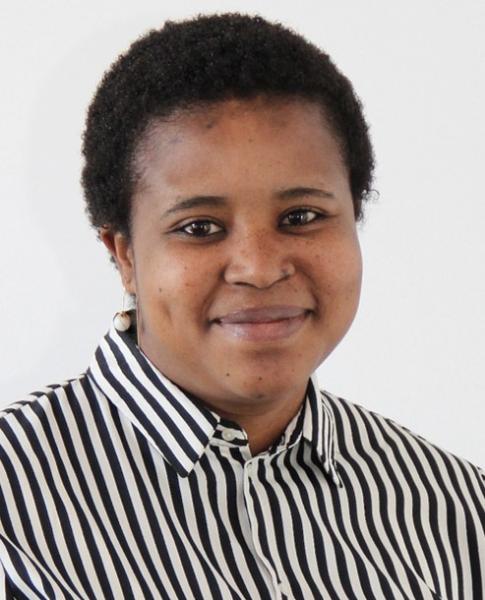 | Mrs Bey-Marrie Schmidt Bey-Marrié Schmidt is based at Cochrane South Africa at the South African Medical Research Council and is leading and contributing to systematic reviews linked to the Collaboration for Evidence-Based Healthcare and Public Health in Africa (CEBHA+) and Research, Evidence and Development Initiative (READ-It) projects. She is also involved in the write-up of qualitative research findings for the South African Guidelines Excellence (SAGE) project. Bey has an academic background in medical anthropology and public health, which enables her to work on both qualitative and quantitative reviews and primary studies. She is particularly interested in evidence synthesis and knowledge translation activities of public health interventions that can improve clinical and health system outcomes. Bey is currently in the process of finalising her PhD dissertation through the School of Public Health and Family Medicine at the University of Cape Town. |
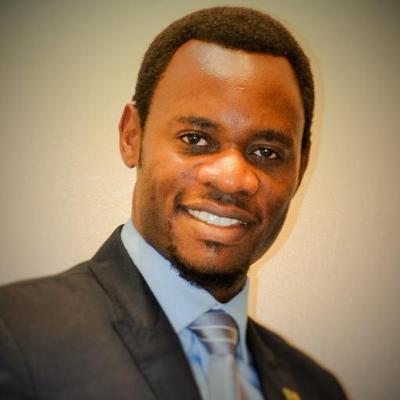 | Dr Lawrence Mbuagbaw Dr. Mbuagbaw is an assistant professor in the Department of Health Research Methods, Evidence and Impact in the Faculty of Health Sciences at McMaster University and a research methods scientist and clinical epidemiologist at St. Joseph’s Healthcare Hamilton. He is an editor for the Cochrane Infectious Diseases Group. He earned his medical degree at the FMBS, University of Yaoundé in Cameroon and his Master of Public Health at The Hebrew University of Jerusalem in Israel before completing a PhD in health research methodology (clinical epidemiology) at McMaster University. Dr. Mbuagbaw’s research interests are mother and child health, HIV care, health systems research, and health research methodology with a focus on enhancing biostatistics and epidemiological techniques to improve health outcomes using pragmatic knowledge translation designs. |
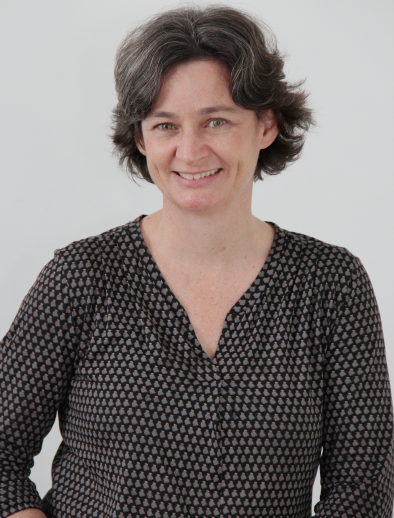 | Dr Nandi Siegfried Dr Siegfried is a South African public health medical specialist working as an independent consultant. Following several years in clinical medicine, she transferred to a research career focused on clinical epidemiology. Prior to consulting, she worked for a decade at senior management level at the South African Medical Research Council, where she was co-director of the South African Cochrane Centre and Deputy Co-coordinating Editor of the Cochrane HIV/AIDS Review Group. As a consultant she provides assistance and guidance, as well as technical support to international, national, institutional and non-government agencies in the healthcare sector. She is highly experienced in knowledge translation having acted as Chair, Technical Advisor and/or Methodologist to 20 World Health Organization Clinical Guidelines Development Groups. |
 | Mr Michael McCaul Mr McCaul is a researcher and clinical epidemiologist at the Division of Epidemiology and Biostatistics, at Stellenbosch University. Michael is the co-convenor of a masters course on Clinical Practice Guideline development at Stellenbosch University and involved in various guideline development projects as a methodologist and expert panel member, including prehospital care in South Africa and advanced first aid guidelines. Michael is married to an orthopaedic registrar, who is twice as beautiful as she is strong. In his spare time. Michael enjoys hiking and trying to convince his daughter that tummy time is the best thing ever. |
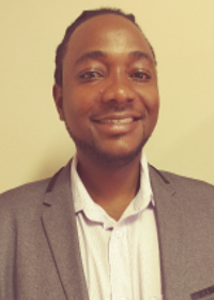 | Mr Promise Nduku Mr Nduku is a Researcher at the Africa Centre for Evidence. His work entails conducting, supporting, and planning external and internal empirical research in relation to evidence-informed decision-making, including evidence synthesis (e.g evidence maps and systematic reviews), evidence networks as well as mechanisms for evidence use, among others. He holds a Bachelor of Economic Science degree from Monash University, Bachelor of Commerce Honours Degree from the University of Johannesburg, and a Master of Commerce in Development Economics from the same institution. |

Cochrane
South Africa
Trusted evidence.
Informed decisions.
Better health.